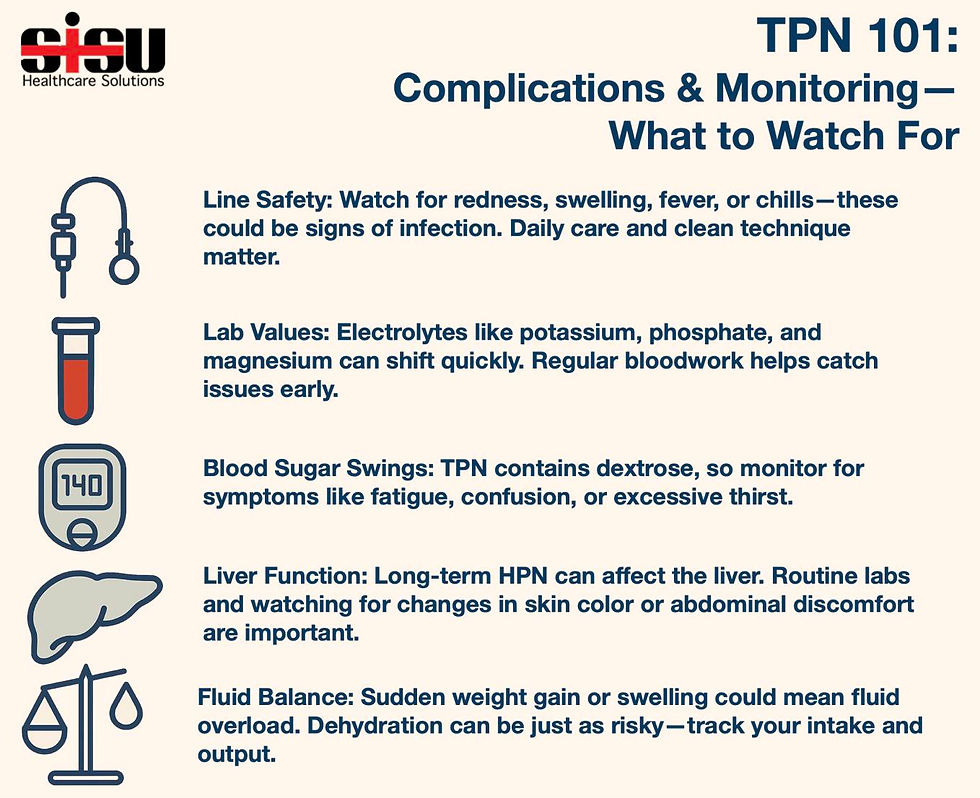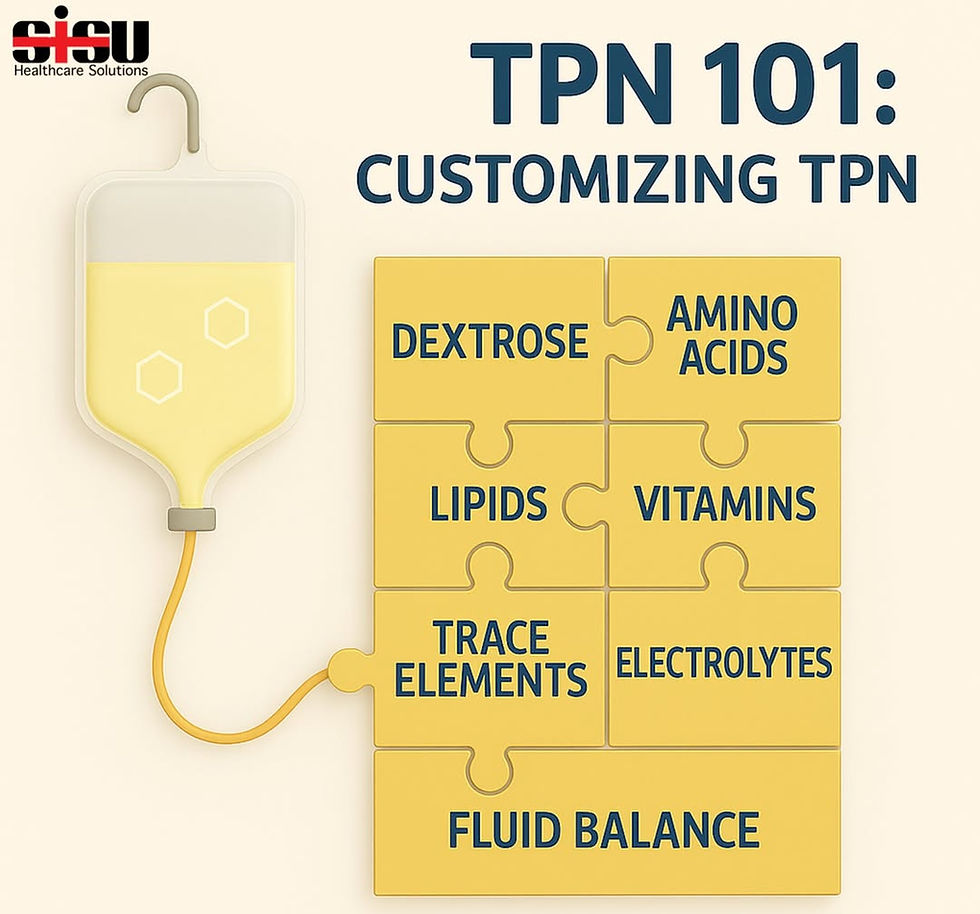Tips to Make Infusion Days Easier
- CKHendry
- Jan 26, 2023
- 3 min read
Hydrate!
Hydration is great advice for anyone who needs good IV access. Start drinking water, juice and power drinks the day before an infusion is scheduled. Stay away from coffee or alcohol as they can dehydrate the body. If you or your family member has a fluid limit, consult your healthcare team to determine how much fluid intake is acceptable. Similarly, if you have a heart or kidney condition, but do not have a fluid limit, discuss your hydration plan with your Sisu healthcare team. Make it fun! Popsicles are also a great way to hydrate before an IV start.
Get Warm and Toasty!
If you or your family member has a history of difficult IV starts, ask for a warm pack to apply to the veins before anyone attempts a stick. The warmth causes a reaction called vasodilation, which can make the veins larger and easier to access.
Pre-Meds!
Most patients receiving IVIG require some form of pre-medication. “Pre-meds” are those medications given half an hour to an hour before infusion for the purpose of limiting any potential side effects. The following are some, but by no means all, of the possible pre-meds for IVIG. • Diphenhydramine (Benedryl) • Acetominophen (Tylenol) • Ibuprofen (Motrin) • Naprosyn (Aleve) • Prednisone • Hydrocortisone • Methylprednisolone (Solumedrol) • Saline IV Again, consult your Sisu healthcare team if you have any questions about pre-meds.
Reduce Side Effects!
Initially, be sure to alert your healthcare team if you or your family member has been ill, because illness may result in side effects being more pronounced, and this can alter the pre-medications needed. Even if it seems like “just a small cold,” let your Sisu healthcare team know before starting the infusion. If there is pain or discomfort at the site during infusion, always alert your infusion nurse immediately. Sometimes a warm or cold compress on the site of infusion can help. If all else fails, you can ask your IV nurse to look for IV access in your arm rather than in your hand, as the larger arm vein can be far less sensitive than the smaller and more delicate hand veins. If you or your family member is suffering from serious side effects after IVIG infusions, such as migraines, back pain, vomiting or listlessness, there are some possible solutions you can discuss with your Sisu healthcare team. Some things might include
• Slowing down the rate of infusion
• Changing brands of IVIG
• Switching to subcutaneous infusion (under the skin)
• Infusing normal saline fluid after IVIG
What is IVIG?
IVIG is used successfully in a wide range of autoimmune and inflammatory conditions. If you are seeing an immunologist for an immune deficiency or a rheumatologist for autoimmune conditions, IVIG therapy could be an option for you and one that also would allow your treatment to be conveniently administered in your home.
Immunoglobulin is a blood product that typically treat conditions such as:
Thrombocytopenia Purpura (ITP)
Kawasaki Disease
Primary Immune Deficiencies
Ploymyostis
Systemic Lupus Erythematosus
Guillain-Barre syndrome
Dermatomyositis
Several Rare Diseases and Other Conditions
IVIG is administered as an intravenous infusion over several hours. IVIG frequency and duration for therapy will vary based on the condition that is being treated.
While most patients will experience little to no side effects, the side effects that could be experienced include:
Chills
Flushing Headaches
Nausea
Other minor symptoms
Sisu Healthcare Solutions offers safe, convenient and cost effective IVIG home infusion. Our healthcare professionals are highly trained and will be a trusted partner in the patient’s in-home health journey. Sisu also has outpatient infusion centers located in Las Vegas, NV and Tempe, AZ for additional infusion needs.
Sisu Home Infusion Therapies include:
Crohn’s diseases and ulcerative colitis
Rheumatoid and psoriatic arthritis
Autoimmune Disorders
Immune Deficiencies
Hemophilia and other bleeding disorder
Chemotherapy/Radiation
Chronic inflammatory demyelinating polyneuropathy (CIPD)
Myasthenia Gravis (MG)
Women’s Health
Sisu will provide personalized medical care that includes a customized care plan, which is therapy-specific. We provide 24/7/365 access to one of our expert Nurses. Sisu is ACHC accredited.
Please contact us for more information or questions you might have.
- - - - - - -
Disclaimer: The information in this blog post about intravenous immunoglobulin (IVIG), is provided for general informational purposes only and may not reflect current medical thinking or practices. No information contained in this post should be construed as medical advice from the medical staff at Sisu Healthcare Solutions




Comments